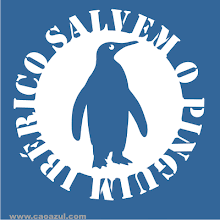 "Is the Internet a vast arena of unrestricted communication and freely exchanged information or a regulated, highly structured virtual bureaucracy? In Protocol, Alexander Galloway argues that the founding principle of the Net is control, not freedom, and that the controlling power lies in the technical protocols that make network connections (and disconnections) possible. He does this by treating the computer as a textual medium that is based on a technological language, code. Code, he argues, can be subject to the same kind of cultural and literary analysis as any natural language; computer languages have their own syntax, grammar, communities, and cultures. Instead of relying on established theoretical approaches, Galloway finds a new way to write about digital media, drawing on his backgrounds in computer programming and critical theory. "Discipline-hopping is a necessity when it comes to complicated socio-technical topics like protocol," he writes in the preface." (...)
"Is the Internet a vast arena of unrestricted communication and freely exchanged information or a regulated, highly structured virtual bureaucracy? In Protocol, Alexander Galloway argues that the founding principle of the Net is control, not freedom, and that the controlling power lies in the technical protocols that make network connections (and disconnections) possible. He does this by treating the computer as a textual medium that is based on a technological language, code. Code, he argues, can be subject to the same kind of cultural and literary analysis as any natural language; computer languages have their own syntax, grammar, communities, and cultures. Instead of relying on established theoretical approaches, Galloway finds a new way to write about digital media, drawing on his backgrounds in computer programming and critical theory. "Discipline-hopping is a necessity when it comes to complicated socio-technical topics like protocol," he writes in the preface." (...)Foreword: Protocol Is a Protocol Does, by Eugene Thacker


Está na bancada da Inside. Vou lendo disfarçadamente.
ResponderEliminarSe não fossem os protocolos não existia pirataria, protocolo P2P (peer-to-peer - o que é meu é teu, e vice-versa).
ResponderEliminarAnarquia na Internet não me pareceria lá muito bom, não.Deixem lá os protocolos descansados, sejam protocolos ditadores fascistas, comunistas, ou o que sejam. São os chefes de estado maior da Internet! =)
Certo, certo, ng está à partida contra a organização, mas é bom perceber que ela existe e em que é que determina as nossas (im)possibilidades! Sem este afastamento crítico, tb não é possível discutir e, quem sabe, melhorar. (E viva P2P!)
ResponderEliminarBem vindo, INDIE! :)